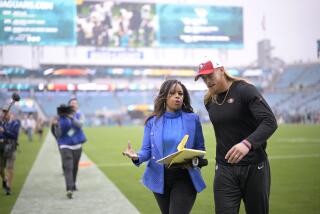Judge Denies Licenses to Graphic Scanning ‘Fronts’
- Share via
WASHINGTON — An administrative law judge for the Federal Communications Commission has denied 700 applications to provide radio paging services by four companies that he found were fronts for Graphic Scanning Corp., the nation’s largest paging company.
In a 173-page ruling Wednesday, Thomas B. Fitzpatrick, the FCC’s chief law judge, accused Graphic Scanning of trying to skirt FCC regulations that limit the number of paging licenses assigned to a single company.
The four companies, Fitzpatrick said, “submitted information of a misleading nature at a time when truthfulness and candor should have been the order of the day.” The 700 applications were to serve 40 markets across the country.
Plans to Appeal
Graphic Scanning, based in Teaneck, N.J., provides specialized data and message services, including paging and pay television. The company has also applied to the FCC for licenses to provide cellular radio and direct satellite-to-home broadcast service.
Edward R. Busch, vice president of Graphic Scanning, said the company plans to appeal the decision to the full commission.
“The company believes the administrative law judge’s decision is without merit and is not supported by the facts,” he said.
The judge’s ruling will take effect in 50 days unless appealed within 30 days.
Michael D. Sullivan, chief of the FCC’s mobile services division, said that as a result of the ruling, the FCC not only could turn down Graphic Scanning’s applications for cellular and direct broadcast licenses but also strip it of hundreds of other licenses now held by the company and its subsidiaries.
Licenses ‘at Risk’
“Every license that Graphic Scanning and its subsidiaries hold is at risk,” he said.
The four companies that filed the paging applications with the FCC are A.S.D. Answer Service Inc., B. W. Communications Inc., P.A.L. Communications Systems Inc. and Vineyard Communications Inc.
Fitzpatrick found that Graphic Scanning prepared the four companies’ FCC applications, provided them with advice and offered them an arrangement by which they could use Graphic Scanning’s e2020176756 In addition, all four firms used the same consulting firm, a subsidiary of Graphic Scanning.
The judge found that Graphic Scanning intentionally selected applicants who were friends of Barry Yampol, Graphic Scanning’s founder and chairman, even though they lacked knowledge and experience in the paging business.






